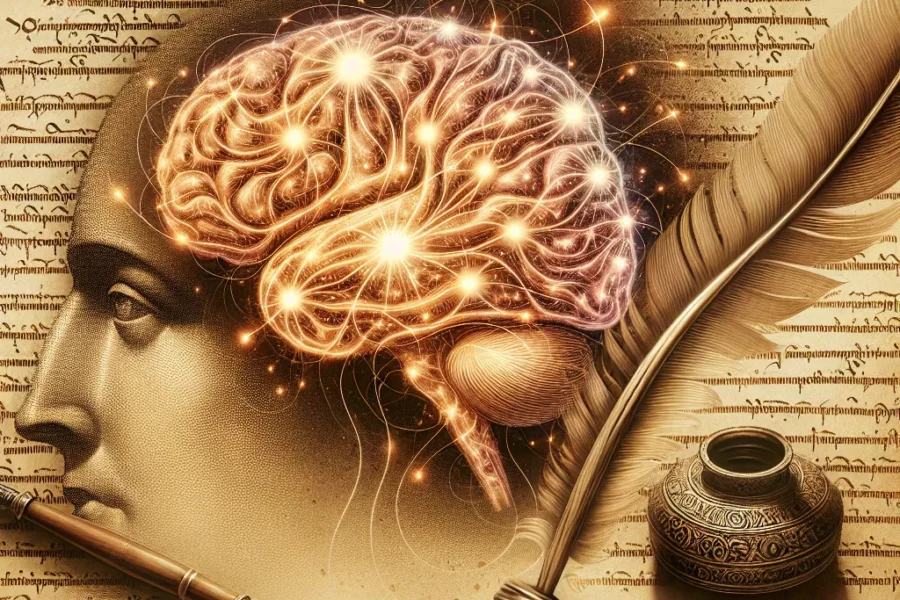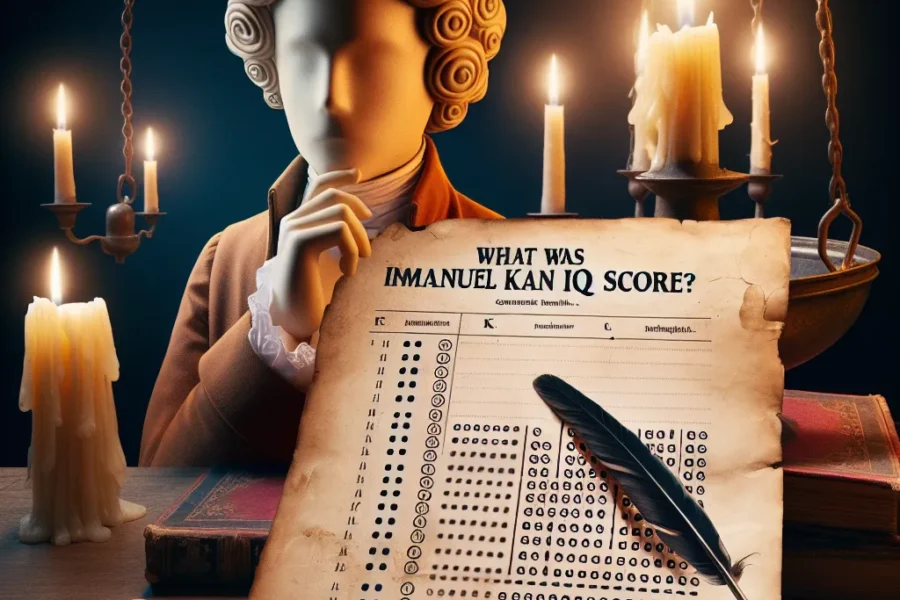Johann Wolfgang von Goethe, one of the most prolific thinkers and literary masters of Western civilization, remains a subject of fascination not only for his contributions to literature, science, and philosophy but also for his intellectual prowess. The polymath, who lived from 1749 to 1832, has often been described as a quintessential Renaissance man, excelling in multiple disciplines that spanned the natural sciences, political theory, and artistic endeavors. One facet of his legacy that generates significant curiosity is his estimated IQ score. While there is much debate surrounding the accuracy and meaning of historical IQ estimations, an analysis of Goethe’s intellectual capabilities offers intriguing insights.
If you are looking for legitimate IQ Tests which pass the entry bar for Mensa, see our IQ Tests.
To understand the discourse around Goethe’s IQ, it’s important first to appreciate the limitations and context of IQ measurement. The concept of IQ, or Intelligence Quotient, as we understand it today, did not exist during Goethe’s lifetime. The modern IQ test was first developed in the early 20th century by Alfred Binet, long after Goethe’s death. Therefore, any discussion of Goethe’s IQ score is necessarily speculative and must be framed within the interpretative assessments made by historians, psychologists, and experts on genius studies.
Renowned for his work “Faust,” Goethe also made significant contributions to the fields of botany, anatomy, and the theory of colors. He was a statesman, serving as a minister in the Duchy of Saxe-Weimar, and his scientific treatises often prefigured theories that wouldn’t be formally recognized until many years later. His multifaceted achievements have led some scholars to estimate his IQ to be exceptionally high, often cited within the range of 210 to 225. This figure places him in a rarified stratum, surpassed by few individuals in recorded history.
One compelling aspect of Goethe’s intellectual capability is his linguistic proficiency. His literary output spanned decades and included works written in German, Latin, Greek, and French. Goethe’s talent for languages was evident early in life; his father, Johann Caspar Goethe, ensured that he received rigorous instruction in multiple languages. By adolescence, Goethe was already fluent in several languages, demonstrating an ability to synthesize and articulate complex ideas across linguistic barriers. Linguistic talent is often correlated with high verbal-linguistic intelligence, one of the multiple intelligences defined by educational psychologist Howard Gardner.
Moreover, Goethe’s contributions to science reveal a mind adept at grasping and advancing complex theoretical frameworks. His work “Metamorphosis of Plants” laid the groundwork for contemporary botanical science. Goethe rejected the mechanistic approach to nature propounded by Enlightenment thinkers, advocating instead for a more holistic, organic interpretation of life forms. He developed a morphology of plants that prefigured aspects of Darwinian evolution, recognizing that all plant forms are related by transformations and adaptations to their environment. His color theory, though controversial, also demonstrated his deep engagement with the natural world and challenged the theories of Isaac Newton.
The intersection of Goethe’s literary creativity with scientific inquiry offers compelling evidence of his extraordinary cognitive flexibility. Cognitive scientists often measure this trait, known as “divergent thinking,” as a component of high intellectual functioning. Divergent thinking involves the capacity to generate multiple solutions to open-ended problems and is closely related to creative genius. Goethe’s interdisciplinary approach and ability to find applications of his insights across different domains speak volumes about his cognitive versatility.
In addition to his scientific and literary achievements, Goethe’s philosophical insights provide another testament to his profound intellect. His correspondence and conversations with contemporary intellectual giants such as Friedrich Schiller, Johann Gottfried Herder, and Immanuel Kant reveal penetrating analyses on subjects ranging from aesthetics to metaphysics. Goethe’s philosophical outlook, characterized by a belief in the unity of art, science, and nature, distinguished him as a thinker whose work transcended the compartmentalized thought prevailing in his era. This holistic vision arguably requires a high level of abstract reasoning, a key component assessed in modern IQ tests.
However, it’s crucial to approach any estimations of Goethe’s IQ with a degree of skepticism. Modern IQ tests focus on quantifiable aspects of intelligence such as spatial reasoning, mathematical logic, and pattern recognition. These tests, while useful, do not entirely capture the breadth of cognitive abilities demonstrated by historical figures like Goethe. Additionally, the high IQ estimates often bandied about—figures surpassing 200—require methodological rigor and may be influenced by anecdotal accounts and the romanticizing of historical geniuses.
Nonetheless, the consensus among scholars is that Goethe possessed an intelligence that was staggeringly high, even by today’s advanced metrics. His intellectual curiosity and capacity for sustained work across numerous fields illustrate a rare kind of genius. Whether we can pin down an exact IQ score is beside the point when weighed against the totality of his contributions to humanity. Goethe’s intellect was as diverse as it was deep, encompassing an extraordinary ability to grasp and convey the complexities of both the natural and human worlds.
Contemporary studies of highly intelligent individuals may offer some analogies to understanding figures like Goethe. Modern geniuses often show an intense drive and passion for their fields of interest, combined with a high tolerance for failure and perseverance. These traits allow them to achieve extraordinary accomplishments over their lifetimes. Goethe exhibited these traits abundantly, dedicating decades to projects that revealed new paradigms of understanding in both the arts and sciences.
To conclude, while the question “What was Johann Wolfgang von Goethe’s IQ score?” may elicit numbers ranging from 210 to 225, it’s essential to understand that such figures only offer a glimpse into his extraordinary mind. Goethe’s real legacy lies not within an estimated numerical score but in the vast and varied body of work he left behind—work that continues to inspire, challenge, and inform scholars, scientists, and artists to this day. Whether it’s through his literary masterpieces or his scientific inquiries, the genius of Goethe transcends the limitations of an IQ score, solidifying his status as a true polymath of his time.
If you have found this exploration of Johann Wolfgang von Goethe’s intellectual legacy intriguing and are inspired to measure your intellectual potential, see our IQ Tests.



Leave a Comment